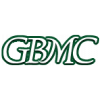Job Description
General Summary
This role is considered the minimum role for all nurses who have greater than 12 months experience. Provides and coordinates independent care to patients within a clinical specialty as a fully effective and participative member of the interdisciplinary team.
Principal Responsibilities and Tasks
The following statements are intended to describe the general nature and level of work being performed by people assigned to this classification.
These are not to be construed as an exhaustive list of all job duties performed by personnel so classified.
Clinical Practice :
Provides independent care to unit specific patient population; serves as clinical resource for others, utilizes and integrates evidence into practice, functions effectively in roles specific to unit (such as charge nurse, etc.).
- Accountable to patients and families for the processes and outcomes of care during an episode of care.
- Accountable to peers for the advancement of group practice on the unit, and to the nurse manager for the totality of work performance.
Serves as an effective primary nurse; collaborates with interdisciplinary team to plan and coordinate care addressing patient / family needs.
Serves as clinical resource for others.
Service / Quality :
Assists in team development and evaluation of patient care delivery; suggests methods for improvement. Participates in collection of data related to outcomes (e.
g. hand offs, medication safety, etc).
- Participates in implementation efforts addressing nursing quality indicators.
- Participates and contributes to Performance Improvement, or Evidence Based Practice, or research at the unit level.
- Complies with standards and participates with unit level activities for TJC / CARF regulatory compliance.
Unit Operations :
- Supports charge nurse decisions; performs charge role for assigned shifts as needed.
- Follows and supports interdisciplinary communication, collaboration, effective decision making, recognition, leadership, and staffing.
- Assists in the development of clinical practice protocols and standards for the unit / hospital.
- Participates in shared governance activities : Nursing Education and Practice Councils. Assists in development of action plans and supports implementation.
- Orients Clinical Nurse I to shared governance structure and councils.
Professional Development :
- Serves as preceptor, coach, mentor to new nurses and students. Contributes to ancillary personnel skills and development, attends educational offerings and in-services independently.
- Contributes to development of unit based peer review processes; actively participates in individual peer review feedback
Qualifications
Education & Experience
- Licensure as a Registered Nurse in the state of Maryland, or eligible to practice due to Compact state agreements outlined through the MD Board of Nursing, is required.
- Associate degree required; BSN preferred.
- One year nursing experience. Solid knowledge and clinical skills.
- Current CPR certification required.
- Up-to-date status on all mandatory training and classes.
- Maintenance of 10 contact hours of education every two years.
- Member of a professional organization.
- Recent applicable clinical experience in a comparable setting.
Knowledge, Skills & Abilities
- Responsible for maintaining competencies required for the patient care setting; focus on advancing own professional development
- Demonstrates highly effective interpersonal, verbal and written communication skills.
- Demonstrates leadership qualities through effectiveness as charge nurse, preceptor, or clinical resource.
- Demonstrates effectiveness as an interdisciplinary team member.
- Ability to learn and use computer systems in order to manage patient information.
- Ability to participate in team-building efforts on units; supports and models teamwork
- Ability to demonstrate knowledge and skills necessary to provide care appropriate to the patient population(s) served.
Ability to demonstrate knowledge of the principles of growth and development over the life span and ability to assess data reflective of the patient's requirements relative to his or her population-specific and age specific needs.
Patient Safety
Ensures patient safety in the performance of job functions and through participation in hospital, department or unit patient safety initiatives.
- Takes action to correct observed risks to patient safety.
- Reports adverse events and near misses by entering information in the Risk Management reporting system (UMMS safe) and to manager / designee.
- Identifies possible risks in processes, procedures, devices and communicates the same to those in charge.
Additional Information
All your information will be kept confidential according to EEO guidelines.










